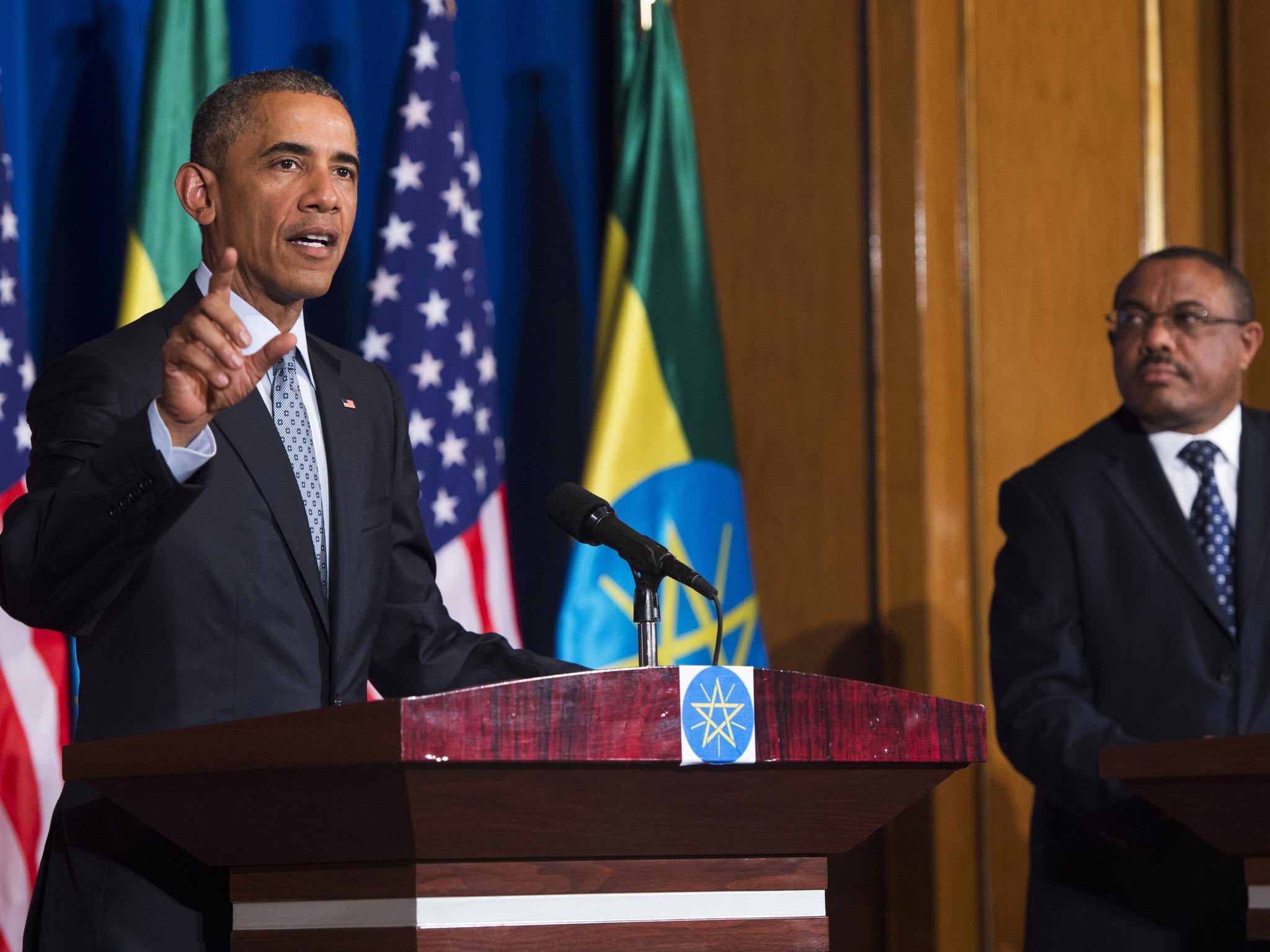Ethiopia 'doesn't deserve' visit from President Obama, say human rights campaigners
'The visit will be used by the Ethiopian government to strengthen its legitimacy'

A charity has said that Ethiopia “doesn’t deserve” a visit from US President Barack Obama because of the country’s human rights abuses.
President Obama arrived in Ethiopia on Sunday night, marking the first visit to the country by a sitting US president.
It followed a weekend in Kenya - his first trip to the country where his father was born since becoming president.
Today, Obama engaged in talks on counter-terrorism, the country's human rights record and regional security issues. Along with Kenya, Ethiopia is fighting against jihadist group al-Shabaab, which is based in Somalia.
The security situation in South Sudan, which has been blighted by civil war since December 2013, was also expected to be discussed.
In a news conference with Ethiopia’s Prime Minister, Hailemariam Desalegn, at the National Palace in Addis Ababa,President Obama said: “My message to the people of Ethiopia is: as you take steps moving your county forward the United States will be standing by you the entire way.”
The president urged the Ethiopian government to curb its crackdowns on press freedom and political openness, AP reported.
He said: “When all voices are being heard, when people know they are being included in the political process, that makes a country more successful.”
But Human Rights Watch said President Obama’s visit will be used by the Ethiopian government to “strengthen its legitimacy”.
David Mepham, the UK director at Human Rights Watch told the Independent online: “This visit will be used by the Ethiopian government to try to strengthen its legitimacy globally. But there is no let-up in its crackdown on dissent and political opposition under its draconian anti-terrorism proclamation.”
The Ethiopian government released several journalists it had been holding on charges of incitement and terrorism ahead of Obama’s visit but, according to the Committee to Protect Journalists, the country is the second-worst jailer of journalists in Africa in the world.
Mr Mepham said: “While six journalists were released in advance of Obama’s visit, many others have been charged or convicted on trumped-up charges, or ill-treated in the notorious Maekelawi detention centre.”
“The Ethiopian government should be pressed to end abusive security measures and its harsh restrictions on civil society, independent media and political opponents," he said.
Sarah Margon, Washington director of Human Rights Watch, told AP: “[The visit] undermines a lot of the presidential goals about good governance on the continent. In many ways, I guess it’s a reward. Ethiopia at this time doesn’t deserve that.”
After being devastated by famine in the 1980s, Ethiopia is one of the fastest-growing economies in Africa and has pushed growth to double digits.
Join our commenting forum
Join thought-provoking conversations, follow other Independent readers and see their replies
0Comments